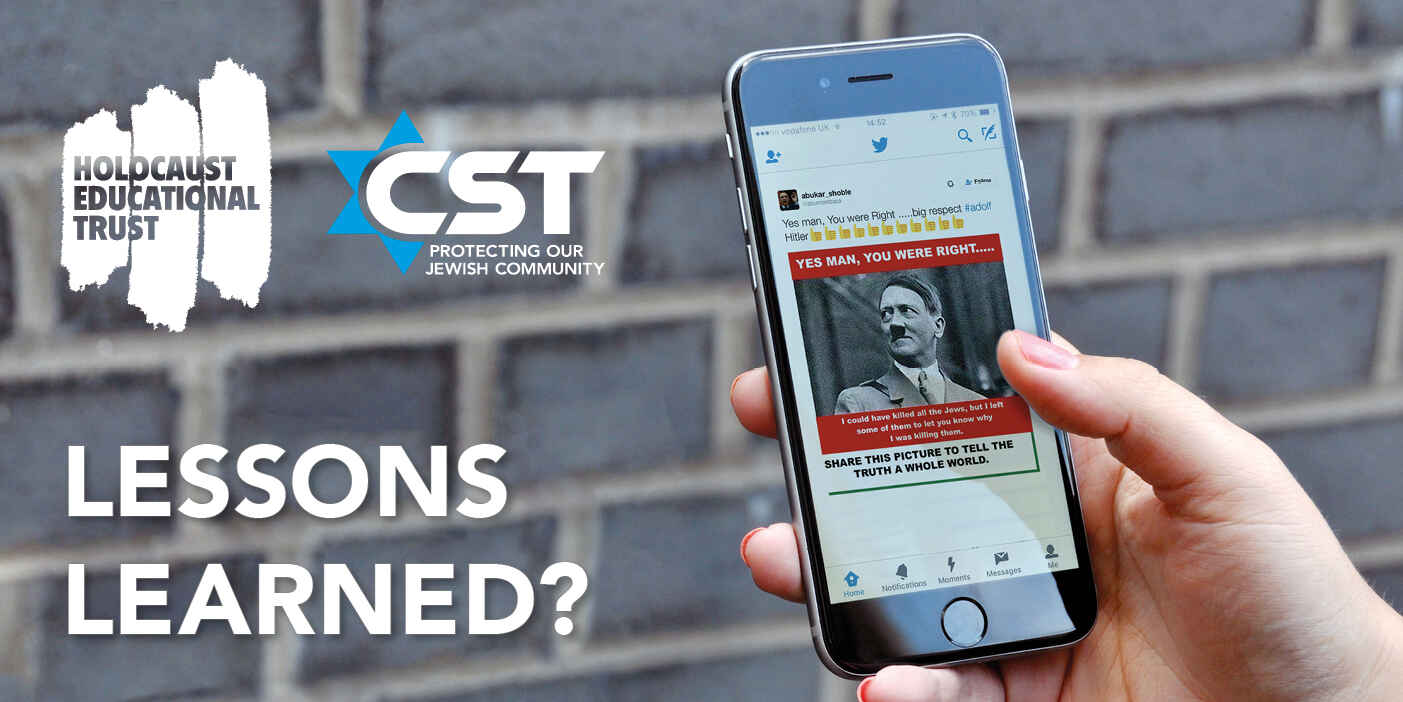CST Blog
Lessons Learned: The boundaries of responsible discourse
10 October 2016

This article by Chief Rabbi Ephraim Mirvis originally appeared in the Holocaust Education Trust and CST booklet ‘Lessons Learned? Reflections on Antisemitism and the Holocaust’. Read the full article in the booklet here.
No-one enjoys being on the receiving end of an insult. Yet, it is a sad indictment of our times that insults of a certain mode can become the norm. In politics and the celebrity world they are widespread and likely to be considered the ‘price of doing business’. Prime Minister’s Questions offers a useful illustration of this phenomenon. Once a week, the men and women whom we have elected to represent us in Parliament trade jibes and insults. It is rarely out of genuine malice – in the modern world, that is just how the game is played.
However, it is broadly understood that there are lines which must not be crossed. Imagine for a moment that during a heated exchange in Parliament, one MP began insulting another’s immediate family or invoked a personal tragedy or bereavement as a line of attack. There would, quite correctly, be uproar. Over time, we have developed a clear sense of where the limits of impassioned debate should lie. Those who remain within those limits win our respect and those who wilfully stray beyond them, very quickly earn our deepest disapproval.
The most insidious kinds of insult, the like of which we instantly recognise as being entirely unacceptable are recognisable because they attack the deepest and most personal parts of our identity. They target elements that are so central to who we are, that often, we couldn’t change them even if we wanted to. And, since it is not a criminal offence to throw around these kinds of insults, we rely on the ‘court of public opinion’ to pass judgement on those who do so
Read More

Love since 7 October
14 February 2025

Antisemitic Incidents Report 2024
12 February 2025

The Fall of Assad and the Zionist “Evil Plan”
8 January 2025